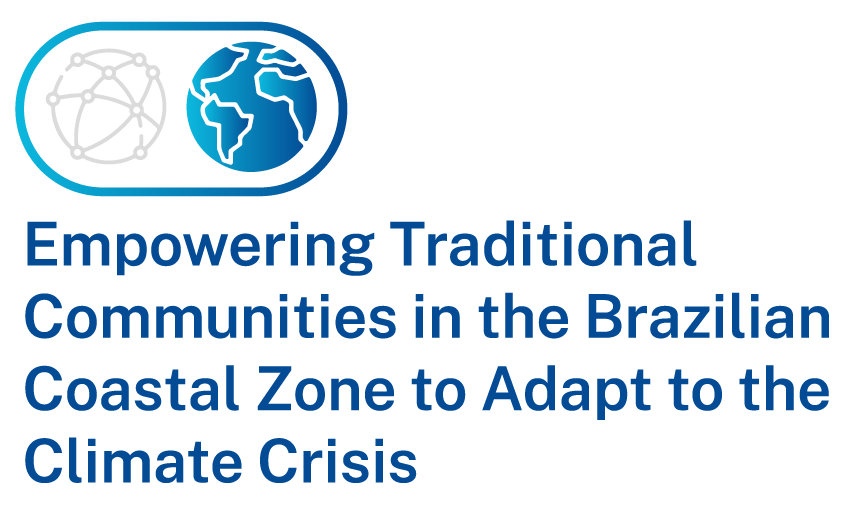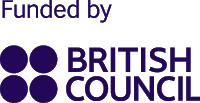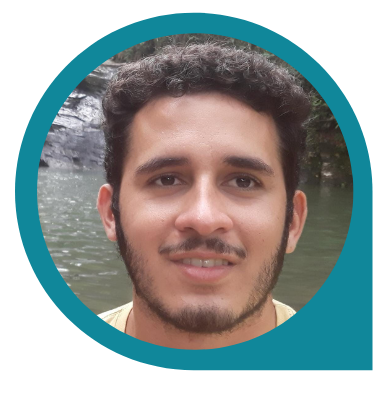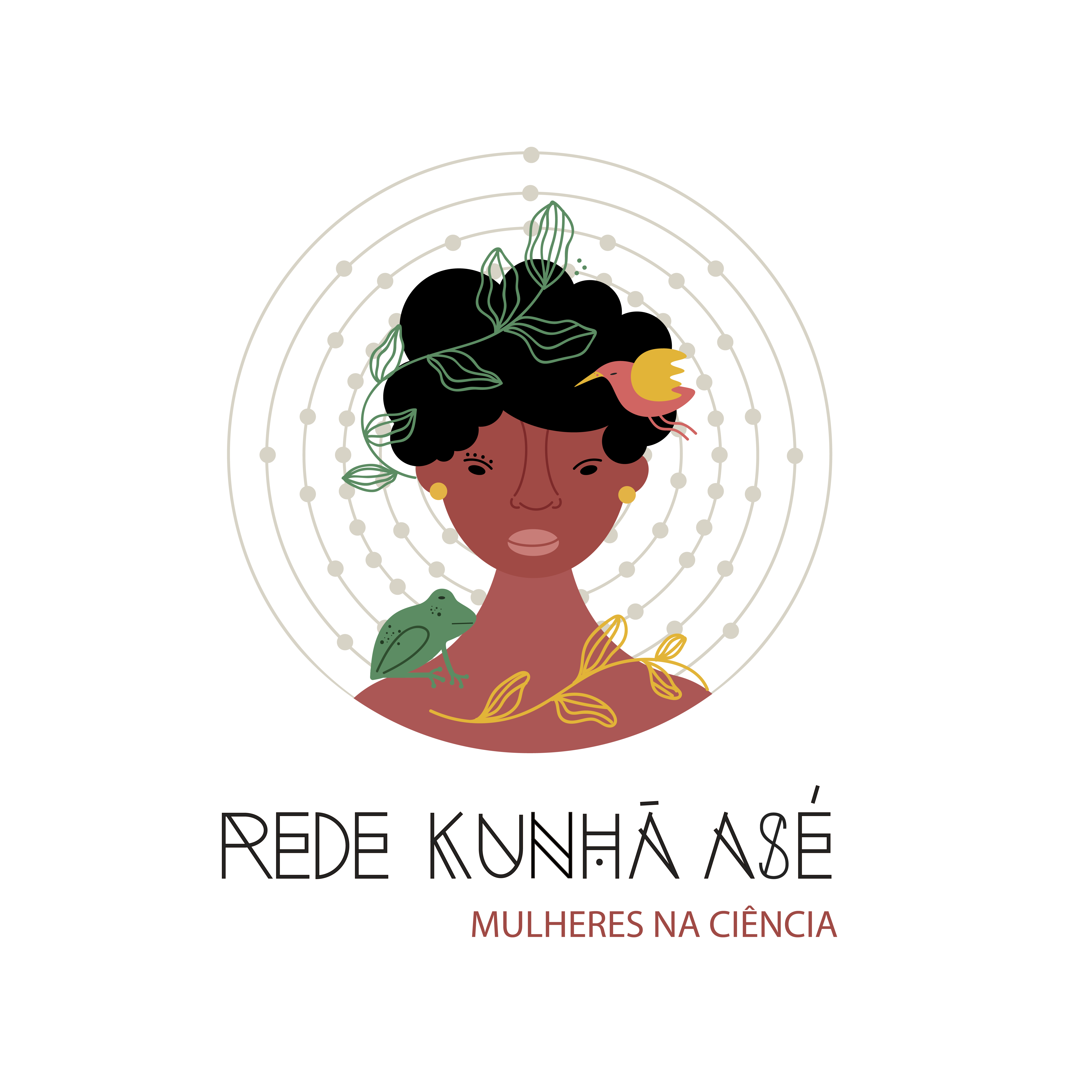FISHERVOICES
EXPANDING AND CONNECTING THE VOICES OF FISHERWOMEN TO ADDRESS CLIMATE CHANGE
The FISHERVOICES Project seeks to facilitate the connection between networks of women involved in coastal artisanal fishing in Brazil to broaden and strengthen their voices in discussions on fishing, gender and combating climate emergencies.
We want to understand the challenges these women face in dealing with gender bias and the impact of climate change on fishing and work together to build the best strategy to strengthen and expand their work a more extensive and cohesive network around common goals: tackling climate emergency and gender inequality in fishing.

Project Steps and How to Participate
The FISHERVOICES project was inspired by the ‘Empowering Traditional Communities in the Brazilian Coastal Zone to Adapt to the Climate Crisis’ workshop run by the Ayni Institute, funded by the British Council Research Links Grant. Developed as a Research- Interaction Action Plan Challenge, the FISHERVOICES project won further funding to develop and launch this national network in August 2021

Following award, four implementation stages were planned, ranging from team formation and partnerships, interaction with women’s networks and their members to jointly build and develop strategies to strengthen interaction and discuss gender and climate change issues.
If you :
- are a woman involved with artisanal marine fishing in Brazil,
- are part of or know any network of women involved with artisanal marine fishing, or
- have an interest in the subject and would like to receive news and collaborate with the project contact us!
Just send an email to vozesdomar@institutoayni.org explaining a little about your interest that we return the contact. You can also join the Whatsapp group that we are keeping to disclose information related to the project.
“The 2021 UN Conference of the Parties on Climate Change (COP26) has four main objectives, two of which are aligned with this project”
FISHERVOICES aims to draw attention to the impacts of climate change faced by women involved in artisanal fishing and foster discussion that can help coastal communities adapt to climate change and nurture traditional sustainable practices that promote healthier habitats.
We intend to develop with them strategies to facilitate access and sharing of information on climate change, working collaboratively to identify more efficient and resilient solutions to help combat their impacts and pave the way for the co-development of community strategies for the future.
Working together with women, the FISHERVOICES project supports one of the groups most vulnerable to the impacts of climate change, and seeks to create a pathway to future discussions with the government and academia that can support and debate solutions to current and future challenges.
Photo: Egzon Muliiqi/#oceandecade
Alignment of the Project with the Sustainable Development Goals -SDS
The project has interaction with several of the SDGs but we focus specifically on:
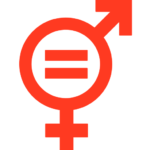
SDG 5 - GENDER EQUALITY
Empowering the women involved in artisanal fishing on the Brazilian coast to broaden their voices;
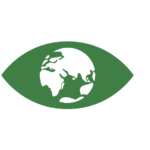
SDG 13 Climate Action
Raising the threats perceived by women and discussing possible solutions
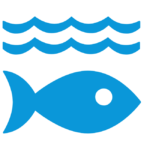
SDG 14 - LIFE IN WATER
Drawing attention to the sustainability of Brazilian marine fishing resources and communities that depend on them
Who We Are
I’m a woman, an oceanographer and an environmentalist. I work with research related to coastal and marine participatory management and with actions to disseminate and raise awareness about the importance of the ocean to society. I want people from all over Brazil to understand better, value and connect with our Ocean. I see FISHERVOICES as an opportunity to foster the implementation of the 2030 Agenda and the Ocean Decade bringing key themes for a more comprehensive and inclusive discussion: gender issues, the vision of traditional communities, the discussion on how to adapt to a changing environment and cooperation between science and society.
I am an interdisciplinary scientist with experience in marine ecology, but increasingly working in marine social sciences contexts. Currently, I am a postdoctoral researcher at Bangor University, researching new methods to improve biosecurity behaviors among recreational boaters. At the same time, I’ve been working with coastal resource collectors in Wales since 2008, first as a consultant to government conservation agencies and then as the focus of my PhD. My research interests link the motivations of collectors with their well-being, both for basic needs and for the experiential dimensions of well-being. I believe that understanding how people depend on their shores is an essential part of developing coastal communities resilient to climate change.
I am an oceanographer at the Federal University of Rio Grande (FURG) and have been working in the environmental area for more than 14 years. Currently, I am a collaborating researcher at CEPSUL/ICMBio, where I am involved in marine biodiversity monitoring projects and environmental public policies, as well as social and environmental actions in Conservation Units. I see the FISHERVOICES project as essential for the deepening of my knowledge with traditional communities and participatory management in coastal and marine regions.
I am an interdisciplinary researcher who navigates from social sciences to natural sciences and vice versa trying to discuss and find solutions for the sustainability of the oceans, with particular interest in public policies and governance in the context of global environmental changes. My research areas are coastal management, ocean governance, public policies and, more recently, gender and environmental conflicts. Currently, I am a postdoctoral researcher at the University of São Paulo and Professor of the Interdisciplinary Graduate Program in Marine Science and Technology. I am also part of an international collaboration within the Belmont Forum project, where I am discussing environmental conflicts for fishing communities. And in this project, I’m looking at the environmental conflicts faced by women, trying to raise the gender issue within the field of environmental conflict.
I am a researcher, biologist and environmental activist. I have been working for ten years with traditional and local communities, with themes related to food security, gender equality, recovery of degraded areas and the 2030 Agenda. I believe that through communication, union and knowledge of different perspectives it is possible to seek effective and inclusive solutions for the great challenges of the 21st century, such as climate change and gender inequality. The FISHER VOICES project aims to assist in this communication and unite women fishermen and all those who work with the ocean in the search for solutions to the most diverse current challenges. In order to strengthen and build, in a participatory way, a network engaged by and for fisherwomen.
I have been a professor in the Hydraulic engineering course at the Federal University of Pelotas since 2019 and I coordinate a new research group for the development of low-cost in situ sensors to monitor changes in aquatic environments. With an interest in conservation and new ecological technologies, the aim of the new group is to help coastal communities gain access to science for the sustainable use of natural resources, making them actors and monitors of their own sustainability.
I’m a scientist based on environmental preservation and activism. With a PhD in Ecology and Evolution, I am currently a postdoctoral researcher at the Federal University of Alagoas, where I develop research in several areas. My main research interests include macroecology and the influences of human activities on biodiversity, with an emphasis on climate change and terrestrial ectotherms. I also evaluate implicit and explicit gender bias in the academic environment. In addition to doing research, I am also a communicator and scientific educator, where I dedicate myself to scientific dissemination to promote the conservation of the environment and the empowerment of women and underrepresented groups. My pronouns are her/hers.
I hold a bachelor’s degree in Biological Sciences from the Paulista State University (UNESP), with a degree in Coastal Management, a Master’s degree in Integrated Environmental Analysis from the Federal University of São Paulo (UNIFESP), and a PhD in Environment & Society from the State University of Campinas (UNICAMP). Since 2011 I have been acting as an Environmental Inspector in the municipality of Santos, which gives me great experience with public administration and coastal environmental policies. I was also an advisor to the APA Marinha do Litoral de São Paulo and capes fellow in Australia, during my doctorate. My themes of interest are: environmental assessment applied in public policies, methods of ecological economy, values of traditional populations and political ecology.
I am driven by curiosity about how the relationship that people and institutions have with the environment and each other can be used to promote sustainable solutions. I graduated in Batchelor of Biological Sciences (IB-USP), followed by my Master’s degree from the Graduate Program in Environmental Science (IEE-USP) from the Laboratory of Management, Ecology and Marine Conservation (IO-USP). I have been involved in different initiatives, such as: Women’s League for the Ocean, bloom ocean, Youth Climate Leaders and Costa Brasilis Institute.
I hold a bachelor’s degree in Social Sciences from the State University of Rio de Janeiro (UERJ) and a Master’s degree in Biological Diversity and Conservation from the Federal University of Alagoas (UFAL). During my master’s degree I had the opportunity to work with traditional riverside communities of the Juruá River in the Amazon and with fishing and seafood communities in the state of Alagoas. Mythemes of interest are traditional and local communities, conservation of socio-biodiversity, populations in protected areas, participatory management in protected areas, local ecological knowledge and socioecological systems.
I´m a Master’s student from the Graduate Program in Biological Diversity and Conservation in the Tropics of the Federal University of Alagoas (UFAL), I have a Bachelor of Theology from the Evangelical Theological Faculty of Rio de Janeiro (2016), and a Pedagogy Degree from The Northern University of Paraná (UNOPAR). I also graduated in Municipal Environmental Management by TerraMar Project and Living Coral Project (2018). I have experience in the area of fishing as secretary of the Santo Amaro Z-21 Fishermen’s Colony and articulator in the work carried out in the fishing area within the APA Costa dos Corals, seeking to contribute to the conquest and consolidation of the rights of fishermen and fishermen of the municipality of Paripueira / Alagoas. I am the Alternate Councillor of the Environment Council of the Municipality of Paripueira (COMDEMA) and currently a full member of the Board of Directors of APA Costa dos Corais – CONAPACC.
SEPTEMBER NEWS
It’s been an exciting month! After the launch of the FISHERVOICES stakeholder group via What’s App, back in August, the project has been gaining momentum gathering interest from fisherwomen, other projects and press around the country. The What’s App group is a great place to see how the project and climate change conversations are developing.
Fishervoices has also opened important dialogue with the Climate Observatory, specifically with the working groups of Gender and Climate and Climate and Ocean. The Gender and Climate group has produced some great education material that we invite you to check in to their website. The Observatory has kindly advertised our project through their Gender and Climate Working Group
Meanwhile, the FISHERVOICES team is working intensively to discuss and finalize an interview script to begin interacting more intensely with fisherwomen and their networks about their perceptions of climate and gender-based challenges in October. Watch this space!
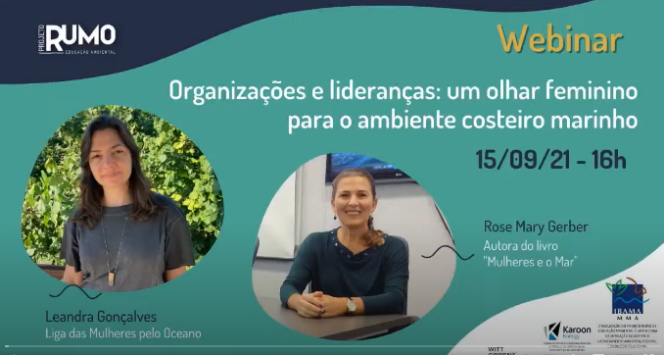
Professor Leandra Gonçalves presented the FISHERVOICES project as part of the 3rd Webinar of the RUMO Project, which discussed ′′Organizations and Leaderships: a female look at the marine coastal environment”. Anthropologist Rose Mary Gerber, who researched Catarinian fisherwomen and wrote the book ′′ Women and the Sea “, also spoke about the empowerment of women and the importance of recognition of all of them performing in the fishing chain, regardless of their role. Many fisherwomen from various municipalities of the Itajaí-Açu River Foz joined this amazing debate!
Worth checking out! Watch the full event on Project RUMO’s YouTube channel and leave your comment.
OCTOBER AND NOVEMBER NEWS
IIn October, the British Council funded FISHERVOICES and Citizen Science RIAPs teamed up to promote a series of publicly available dialogues with members of the LICCI (Local Indicator for Climate Change Impacts), a project that aims to bring insights from indigenous and local knowledge to climate research. During the dialogues (October 8th, 11th and November 4th) we had the opportunity to get to know what LICCI has been doing and to discuss with participants and the audience the challenges and opportunities for collaboration between projects. The dialogue series also consolidates the partnership and collaboration with the “Citizen Science for Traditional Coastal Communities in Adapting to Climate Change” project. Watch this space to check out our recorded conversations with LICCI, with English subtitles, on the the Youtube Channel of the Project CoAdapta | Coastline.

Our hosts, Instituto Ayini, also invited us to give a live webinar on Instagram in October, to talk about the FISHERVOICES project. This was a really interesting discussion and is available here.
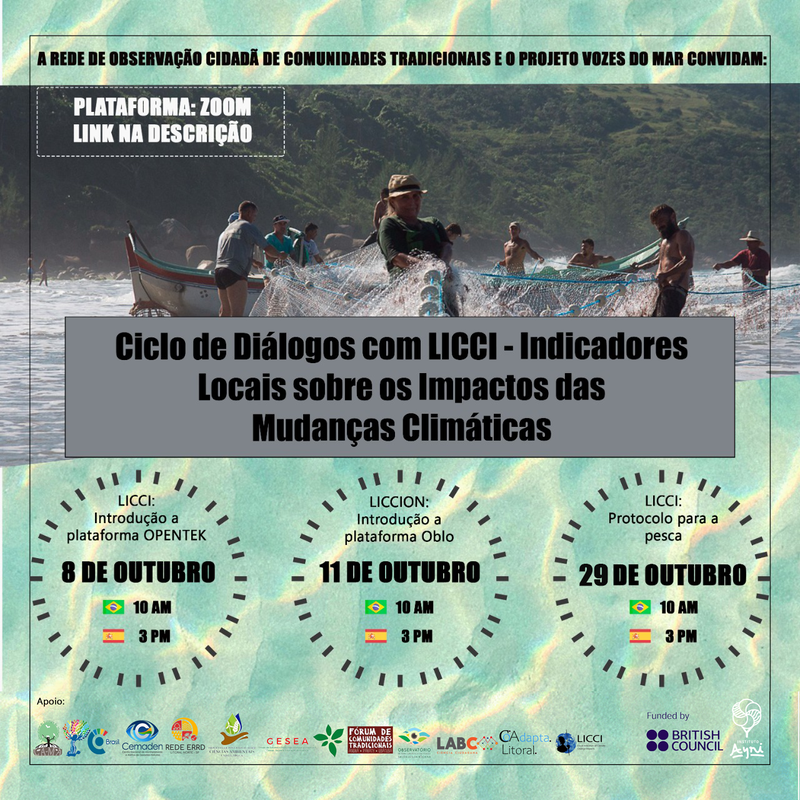
In other exciting news, FISHERVOICES was granted BRL R$870 by Carrefour employees fund of São Paulo. We are grateful for this generous donation and the money will help towards developing materials to publicise the stories of Brazilian fisherwomen.
In the background, the FISHERVOICES team have been creating a repository for climate change education material to distribute to fisherwomen networks around the country through our WhatsApp group. Any fisherwomen are invited to join now to follow the materials and following debate. In November we look forward to developing a series of interviews with these fisherwomen and their network leaders across the country to discuss their perceptions of climate change …. An exciting month ahead!
This was one of the projects awarded in the Challenge Prize developed during the workshop:
